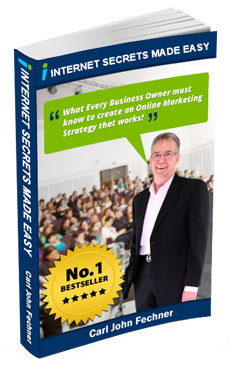What Do Steve Jobs and Richard Branson Have in Common?
We all know they’re billionaires and business powerhouses, but they also benefited greatly from relationships with mentors. Richard Branson talks about how grateful he is to one of his early mentors. The man tutored him in bookkeeping when he was a teenager and really helped him get a handle on the whole ‘business’ thing.
Steve Jobs was known to go his own way, but his mentoring relationship with former Intel manager Mike Markkula helped him and his partners get going when Apple was just a startup. As brilliant as those young entrepreneurs were, it was still a great help to have someone there who could provide the real-world experience they lacked.
It was the same with Google. Larry Page and Sergey Brin invited Eric Schmidt to be CEO of their rapidly-expanding young company when they realized they didn’t know how to manage its growth. Schmidt was an experienced manager who was able to set up the infrastructure needed to support Google’s development.
Even the brilliant minds of our age had mentors who helped them get off the ground. It’s easy to get caught up in the idea that you can succeed on your own. You probably could, but why should you when a mentor would make it so much easier?
How to find the right mentor for you
It can be helpful to perform a mental inventory first and think about the following things:
- What are my strong points?
- Where do I need help?
- Why do I need a mentor in this area?
- What are my short-term and long-term goals?
- What could a mentor do to help me?
- What skills does my mentor have that will help me reach my goals?
- When, where, and how often should we meet?
You don’t have to pick a mentor that satisfies all these criteria. You can pick one for each area where you need help. All the same, don’t go overboard. Input from too many voices can just end up confusing you.
Be bold and think big
You’re not restricted to people you personally know. Think of someone you really admire, who is successful in your chosen field. Then try getting in touch with them. You can send a polite email or approach them after a lecture or seminar. They’ll probably feel flattered that you asked, and the worst they can do is say no.
Sometimes opposites attract
It might feel good to choose someone very similar to yourself, but someone with a contrasting temperament and culture can have much to teach you. They’ll see things very differently than you do. They can help give you a more rounded, balanced perspective. They might even have unique insights to share based on their outsider’s view of your situation.
How will you conduct your sessions?
Meeting in person is undoubtedly great, and probably necessary for, say, a fitness mentor. However, mentoring in many subjects—business, spirituality, finances—can easily be done over the phone or internet.
Before each session, spend a few minutes going over the questions you’d like to ask or the issues you want help with. After all, you’re not a child expecting to be spoon-fed knowledge. Respect your mentor’s time and your own. Then you’ll get the most out of the relationship.
A mentor can be a helpful partner who motivates you towards success. They can also help you calm down when there’s too much on your plate. It’s all in how you choose to approach the mentoring process. One thing is certain—a mentor’s help can be immensely valuable.
If you have any questions or comments about the mentoring process, I’d love to hear from you.
Need some help?
Would you like a short-term coach in your business?
Get a FREE No-obligation 30 minute Coaching session on How to Improve your Digital Sales and Marketing Plan.
Their is no hard sell, this is about you having access to 40 years experience in sales and marketing for 30 minutes.
it’s also about getting to know each other and deciding if we are a good fit.
BOOK NOW




